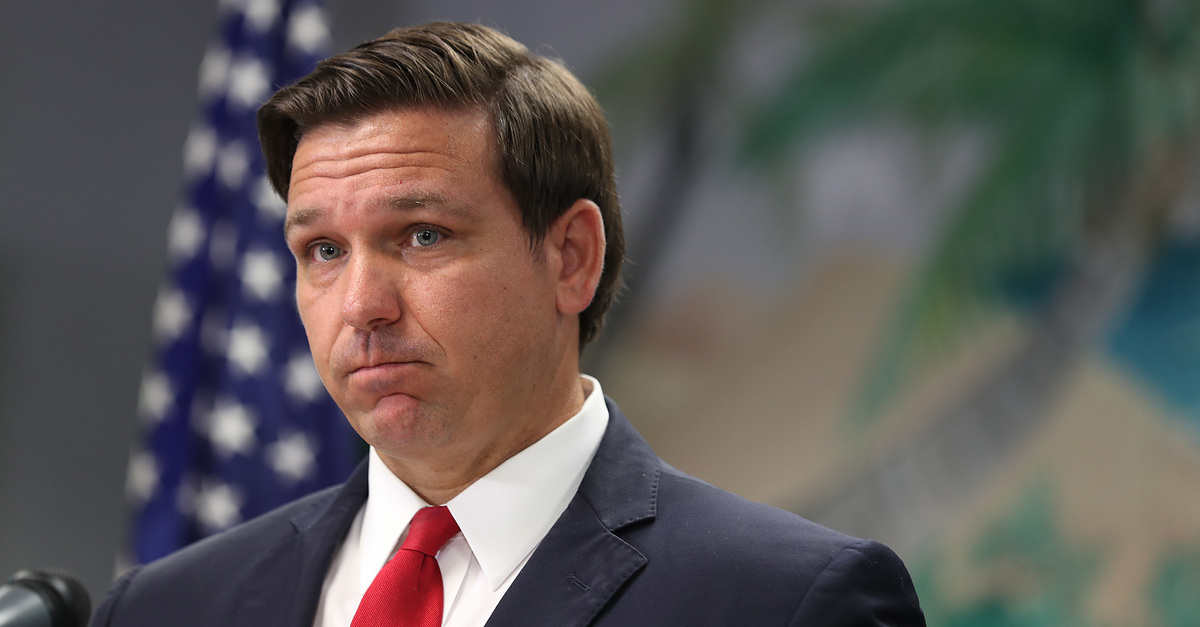
Florida Gov. Ron DeSantis (R)
A pair of online trade associations implored a federal judge to block a controversial Florida law that would penalize social media companies for “censoring” political candidates, calling the measure “patently unconstitutional” and a “frontal assault on the First Amendment.”
The complaint, filed Thursday in the U.S. District Court for the Northern District of Florida, asserts that S.B. 7072 infringes on the rights to freedom of speech, equal protection, and due process by compelling speech from a select group of private companies for their perceived political affiliations. Plaintiff tech trade groups, NetChoice LLC and the Computer & Communications Industry Association (CCIA), further claims that the law is preempted by Section 230 of the Communications Decency Act.
Republican Gov. Ron DeSantis began championing the bill as a way to hold “the Silicon Valley elites” accountable for “censorship and other tyrannical behavior” after Twitter and Facebook banned former President Donald Trump from their platforms for his role in inciting the Jan. 6 siege on the U.S. Capitol.
But according to the lawsuit, and the vast majority of legal experts, the measure would impose financial penalties on companies for engaging in constitutionally protected conduct, such as moderating their online platforms and enforcing their companies’ terms of service.
“The Act discriminates against and infringes the First Amendment rights of these targeted companies, which include Plaintiffs’ members, by compelling them to host—and punishing them for taking virtually any action to remove or make less prominent—even highly objectionable or illegal content, no matter how much that content may conflict with their terms or policies,” the suit stated.
The complaint notes that, under the law, the platforms would be compelled to carry a “variety of harmful, offensive, or unlawful material” such as terrorist incitement, foreign propaganda, calls for genocide, and conspiracies concerning Holocaust denial, effectively robbing companies of “core editorial functions” protected by the Constitution.
“Rather than preventing what it calls ‘censorship,’ the Act does the exact opposite: it empowers government officials in Florida to police the protected editorial judgment of online businesses that the State disfavors and whose perceived political viewpoints it wishes to punish,” the complaint stated. “Although the Act uses scare terms such as ‘censoring,’ ‘shadow banning,’ and ‘deplatforming’ to describe the content choices of the targeted companies, it is in fact the Act that censors and infringes on the companies’ rights to free speech and expression; the Act that compels them to host speech and speakers they disagree with; and the Act that engages in unconstitutional speaker-based, content-based, and viewpoint-based preferences.”
As further evidence that Florida Republicans were motivated by political animus, the complaint highlighted that the law creates specific exceptions for online services owned by The Walt Disney Company and Universal Studios—which is owned by Comcast—“simply because they own well-attended ‘theme parks’ in Florida.”
“This undisguised singling out of disfavored companies reflects the Act’s true purpose, which its sponsors freely admitted: to target and punish popular online services for their perceived views and for certain content-moderation decisions that state officials opposed—in other words, to retaliate against these companies for exercising their First Amendment rights of ‘editorial discretion over speech and speakers on their property.’
Barring a court order halting enforcement, the law is set to take effect July 1.
Read the full lawsuit below.
[image via Joe Raedle/Getty Images]